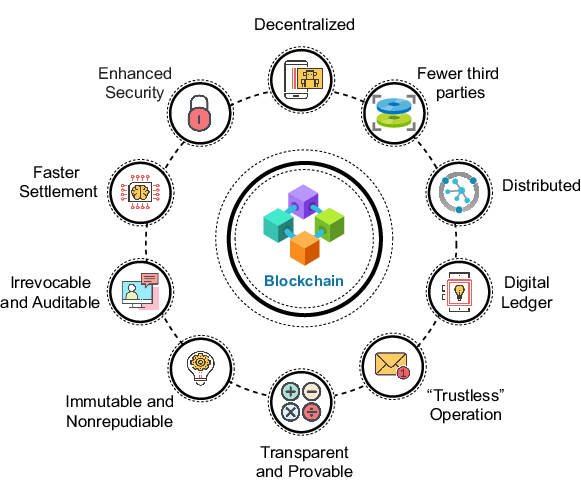Towven.com – The digital age has brought about a paradigm shift in how we interact and conduct transactions. However, concerns around security and transparency continue to plague online interactions.
Blockchain technology emerges as a revolutionary solution, offering a secure and transparent way to record and track data.
Blockchain is a distributed ledger technology that allows for secure, transparent, and tamper-proof recording of transactions.
It functions as a digital ledger of transactions that is duplicated and distributed across a network of computers, eliminating the need for a central authority.
This article delves into the captivating world of blockchain technology, exploring its core principles, diverse applications, and the potential it holds for transforming various industries.
Beyond the Ledger: Understanding the Core Principles of Blockchain
Blockchain technology departs from traditional record-keeping methods by employing several key principles:
-
Distributed Ledger: Blockchain utilizes a distributed ledger, meaning a copy of the ledger is stored on multiple computers across a network. This eliminates the risk of a single point of failure and ensures the immutability of data.
-
Cryptography: Each transaction on a blockchain is secured using cryptography. Transactions are digitally signed using cryptographic keys, making them tamper-proof and verifiable.
-
Immutability: Once a transaction is recorded on a blockchain, it cannot be altered or deleted. This ensures the integrity and authenticity of the data.
-
Consensus Mechanism: Blockchain networks rely on a consensus mechanism to ensure that all participants agree on the validity of transactions. Different blockchain models utilize various consensus mechanisms, such as Proof of Work or Proof of Stake.
-
Transparency: All transactions on a public blockchain are visible to all participants on the network, promoting transparency and trust.
A Tapestry of Trust: Exploring the Diverse Applications of Blockchain Technology
Blockchain technology transcends the realm of cryptocurrency and offers a multitude of applications across various industries:
-
Financial Services: Blockchain can revolutionize financial services by facilitating secure and transparent transactions. It can be used for cross-border payments, trade finance, and reducing settlement times.
-
Supply Chain Management: Blockchain can track the movement of goods throughout the supply chain, ensuring transparency and traceability. This can help identify counterfeit products and improve efficiency.
-
Voting Systems: Blockchain can be used to create secure and auditable voting systems, reducing the risk of fraud and increasing voter confidence.
-
Identity Management: Blockchain can be used to create secure and tamper-proof digital identities, simplifying online interactions and reducing the risk of identity theft.
-
Healthcare: Blockchain can be used to securely store and manage patient medical records, improving access and data security.
-
Intellectual Property Protection: Blockchain can be used to register and track ownership of intellectual property, such as copyrights and patents.
-
Energy Management: Blockchain can facilitate peer-to-peer energy trading and improve the efficiency of energy grids.
Beyond the Hype: Considerations and Challenges for Blockchain Adoption
While blockchain technology holds immense potential, there are some considerations and challenges to be addressed before widespread adoption:
-
Scalability: Existing blockchain models can struggle to handle large volumes of transactions, limiting their scalability for real-world applications.
-
Regulation: The regulatory landscape surrounding blockchain technology is still evolving. Governments need to develop clear regulations to ensure responsible use of the technology.
-
Energy Consumption: Certain blockchain consensus mechanisms, like Proof of Work, consume significant amounts of energy. More sustainable consensus mechanisms are being explored.
-
Technical Complexity: Blockchain technology is still in its early stages of development, and there exists a need for user-friendly interfaces and applications to facilitate broader adoption.
-
Integration with Existing Systems: Integrating blockchain technology with existing legacy systems can be a complex challenge.
A Future Built on Trust: The Potential Impact of Blockchain Technology
Blockchain technology has the potential to fundamentally transform the way we interact and conduct transactions in the digital age.
By fostering trust, transparency, and security, blockchain can pave the way for a more secure, efficient, and inclusive digital ecosystem.
As the technology matures and these challenges are addressed, we can expect to see blockchain play a significant role in shaping the future of various industries and our interactions within them.







